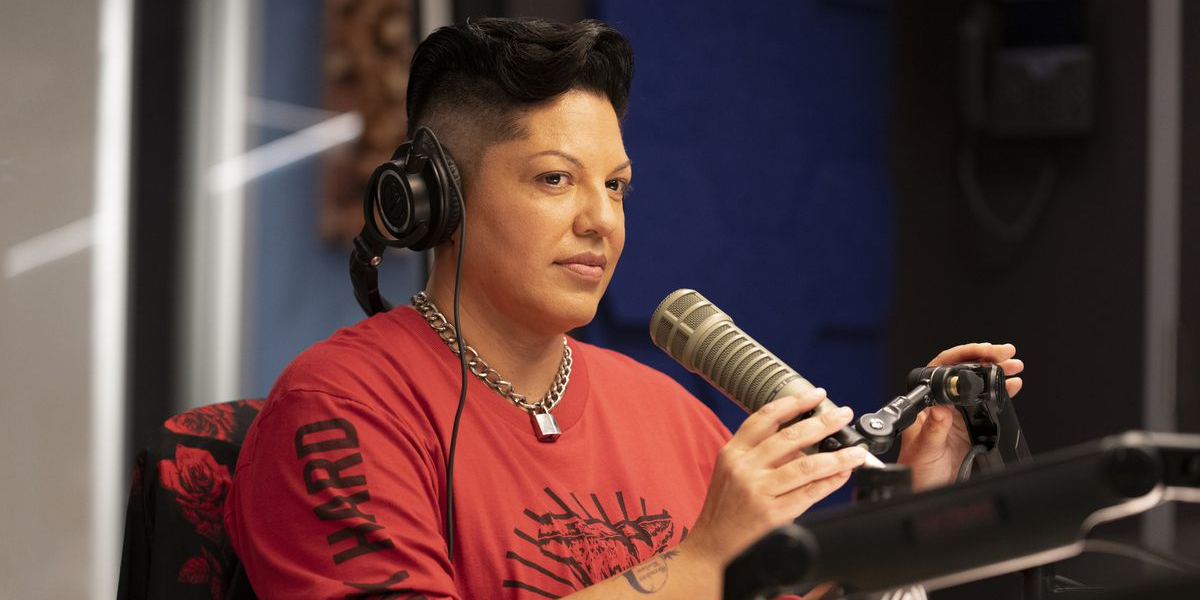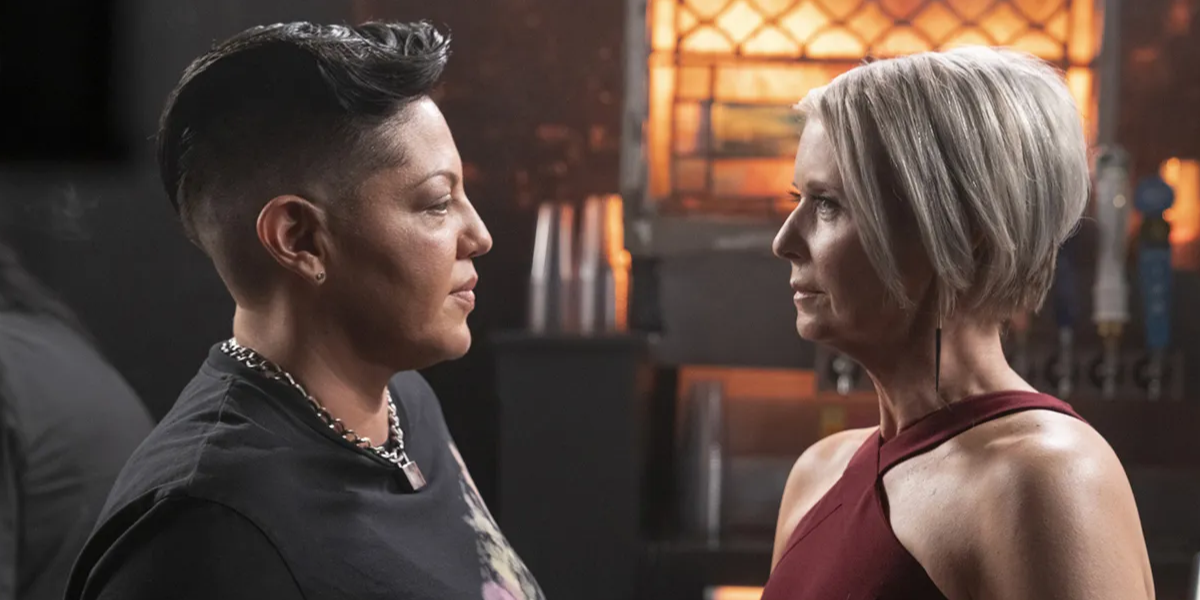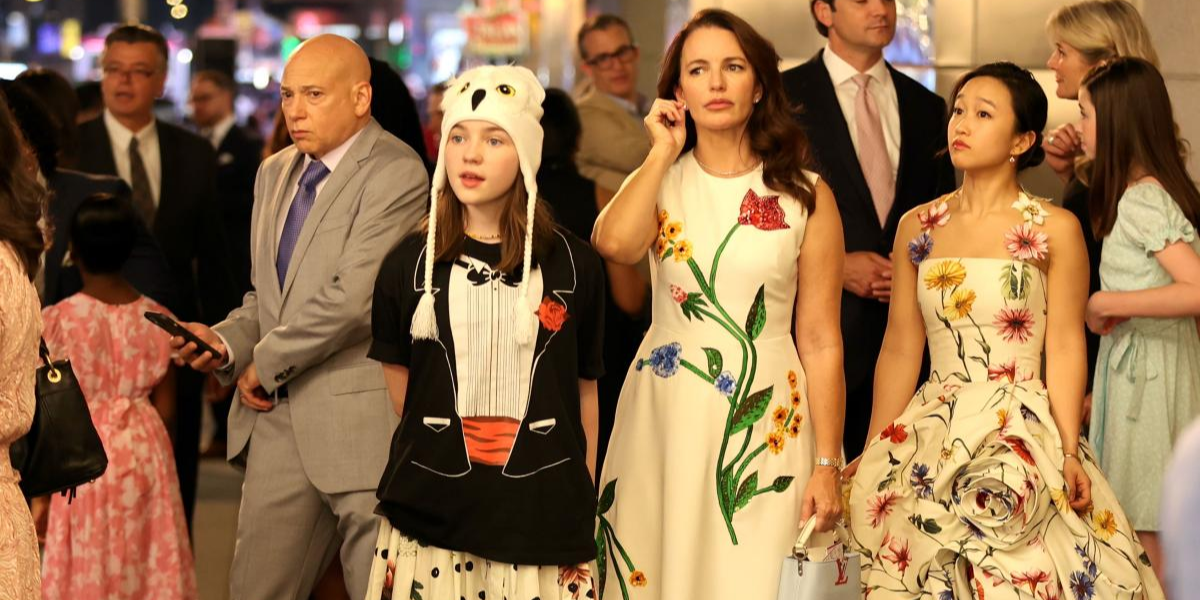WARNING: The following contains major spoilers for "And Just Like That..." available now on HBO Max.
Bringing political nuance to any reboot or sequel series is never an easy task, but it is one that And Just Like That... takes full aim at in modernizing the world of Sex and the City. HBO's sequel series sees the protagonists in a drastically different phase of their lives, yet the far more drastic change is their willingness to confront and discuss the sheer variety of sexualities and genders in the world. Where before the franchise was content primarily to focus on heteronormativity, with the occasional upper-class, white, gay man subplot thrown in, And Just Like That... sets a more open and accepting view of human relationships and identity at its bullseye, but is it successful at this?
The danger with making such a move was that the show could not just mishandle sensitive subject matters, but also appear out-of-touch or even grossly mistreat those it previously ignored so severely that it would have been best not to broaden its focus at all. While And Just Like That... isn't perfect, it may just manage to succeed enough to make the series is better than ever.
From discussing the COVID-19 pandemic to the aging lives of its cast, And Just Like That... quickly establishes its story as taking place in the modern day. While Sex and the City built its reputation on candid conversations about casual sexual encounters, the sequel series matures its subject matter not only by taking a look at issues new to its characters, but at issues which were always present and too often ignored. Inclusive discussions of gender and sexuality are now far more commonplace in the new series as opposed to the original.
Rather than simply using those discussions as set dressing to advertise a shallow new look, however, And Just Like That... goes a step further by prominently featuring genderqueer characters and issues into the plotlines of all three main characters. One of the most prominent opportunities for discussions of queer identity is the character of Che Diaz, played by Sara Ramirez. Utilizing they/them pronouns and presenting themselves as the representative of queer voices in co-hosting their podcast alongside Carrie Bradshaw, Che's frequent focus on charismatic discussion of their experience provides a refreshing and important perspective to a series where straight, white voice previously dominated the narrative.
Yet at the same time, Che's presentation is not perfect. In the episode "When in Rome..." they deliver a stand-up monologue about how reductive and diminutive depictions of genderqueer characters are in media, mocking how they are too often portrayed as sad, miserable and isolated. However, And Just Like That... possibly overcorrects in addressing that problem itself.
Both in their presence in Carrie's arc, and with their affair with Miranda, Che is presented as a universally liked, happy, healthy figure, but they also represent someone new and different who the main characters can learn from, acting more like a learning moment than a character, especially given how much time is dedicated to them on their own. The result is a character who services Carrie and Miranda, thus feeding into Che's critique in a unique way.
Luckily, And Just Like That... does manage to find more nuance in discussions of gender identity where its third main cast member is concerned. Charlotte's child admits they would prefer to go by the name Rock and employ they/them pronouns, and what works about the show's portrayal of Rock's growth is that Charlotte and her husband Harry make mistakes in responding to this. Both are confused, muse over whether or not it is just a phase and argue over how much respectful space to offer versus how much parental guidance. They ask friends and teachers what to do, and every time Rock gives them a new piece of information they catch it. The plotline feels unique, important and, best of all, it still feels like Sex and the City.
Charlotte's development throughout the original series always involved reality's refusal to match up with her idealized world. She did not end up with the husband she imagined nor had the babies she imagined. As Rock opens up about their gender, Charlotte is forced to once again reassess her expectations. All the while, the story that unfolds is an important and largely unseen one, as countless family members watching at home are exposed for the first time to a development far more common than media previously portrayed.
Between Che and Rock's storylines, And Just Like That... does not get a perfect score in its treatment of such important issues, but the series is making a sincere effort rather than a token one. That said effort occasionally hits upon inspired moments rarely seen elsewhere, and it speaks volumes about just how far the franchise has come.



